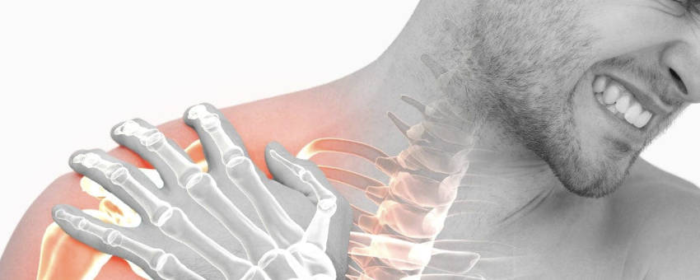Dealing with the painful condition of the shoulder can be incredibly challenging. In this article, you will discover the causes, signs, symptoms, and different ways to manage frozen shoulder conditions.
FROZEN SHOULDER: AN OVERVIEW
Frozen shoulder, also known as adhesive capsulitis, is the most common condition of the shoulder and limits movement in the shoulder joints. A person dealing with a frozen shoulder experiences pain & stiffness in the joints that gets worse over time and may hurt at night.
There are three stages of frozen shoulder, which are freezing, frozen, and thawing. During the freezing stage, you might experience pain and stiffness in the shoulder, limiting your movement. The next stage includes persistent stiffness and a limited range of motion, which also make daily life activities challenging for you. In the thawing stage, the gradual alleviation of pain and stiffness occurs along with the gradual restoration of the range of motion in the shoulder.

What Causes a Frozen Shoulder?
A frozen shoulder is usually caused by the inflammation of the connective tissue surrounding the shoulder joint. The exact reason behind the occurrence of frozen shoulders is not fully understood. However, there are certain risk factors that increase the chances of a frozen shoulder.
- Previous shoulder injury or trauma
Any previous injury or trauma can increase the risk of developing a frozen shoulder.
- Medical conditions
People with certain medical conditions, such as diabetes, thyroid disorders, or heart disease, are at risk of developing frozen shoulder.
- Ageing
Because of ageing, degeneration of the shoulder joint leads to a higher likelihood of developing a frozen shoulder.
- Immobility or lack of us
Prolonged immobilization of the shoulder, such as wearing a sling or not moving the arm after surgery or injury, can lead to stiffness and adhesions in the shoulder joint.
Symptoms of Frozen Shoulders
If you have a frozen shoulder, you may experience signs and symptoms such as pain, stiffness, and difficulty moving the shoulder.
Following are some of the signs and symptoms of a frozen shoulder:
- Dull and aching shoulder pain
- Pain that worsens at night and interferes with sleep
- Gradual onset and progression of symptoms over time
- Limitations or loss of motion
- Difficulty performing everyday tasks
- Stiffness and restricted movement of the shoulder

Consult Dr. Swapnil Verman, the best orthopaedic surgeon in Mathura, if you’re having any of the symptoms mentioned above.
Management of Frozen Shoulders
Frozen shoulders can be managed effectively with the help of a combination of medications and therapies that can help restore the function of the shoulder joint.
- Pain medications
To alleviate the pain and discomfort associated with frozen shoulder, your doctor may prescribe you certain over-the-counter pain medications.
- Heat and cold therapy
Heat and cold therapy can alleviate the pain and discomfort of the affected shoulder and also reduce inflammation.
- Joint distension
It is a non-invasive way to manage frozen shoulder in which a doctor injects sterile water into your shoulder capsule to stretch and move it without pain.
- Physical therapy
Physical therapies include specific stretches and exercises that are focused on restoring and improving the flexibility, strength, and range of motion in the shoulder.
Verman Hospital offers Mathura’s FIRST Custom-Made Rehab Programmes, designed to effectively treat a wide range of orthopaedic problems, including backache, shoulder pain, knee pain, foot and ankle pain, tennis elbow, and sports injuries. Our programme has a range of benefits, including custom-made home exercise charts, no daily physiotherapist consultation needed, a prehab programme for surgeries, tailored exercises to suit your needs, expert guidance for faster recovery, flexible scheduling for your convenience, and targeted therapies for enhancing strength and function.
A frozen shoulder can affect the quality of life due to pain and stiffness in the shoulder. If you’re looking for physiotherapy centres in Mathura, you can reach out to Dr. Swapnil Verman, the best orthopaedic surgeon at Verman Hospital in Mathura.

